As a leading manufacturer and supplier of maize mills in China, PINGLE has been researching and developing maize mill technology for 35years. We are also able to design factory floor steel silos, cement silos, and the necessary auxiliary systems. Our maize mills have been exported to many countries around the world and have earned a high reputation both at home and abroad.
Our maize milling machine has the advantages of high quality, favorable price, simple design, compact structure, low power consumption, low noise, simple operation, easy maintenance, and long service life. Our maize milling machine consists of processing parts such as cleaning, threshing, grinding, and sieving. After each sieving, the unqualified corn grains are drawn out and the remaining corn grains are recycled for further grinding or powdering.
We offer maize mills, maize milling machines, i.e. maize maize-making machines, maize flour machines, maize milling plants, and maize processing machines to grind maize into maize grits, corn bran, and maize flour.
If you want to buy maize mill machines, please feel free to contact us! Our professional team will get back to you within a day.

---Advanced equipments,good quality
---Professional skills,all-related services
---High-quality and efficient technology
---Complete production line, quick delivery
---20 years of experience in the flour mill industry
---Best solution for wheat and maize processing syste
---The biggest flour mill machine manufacturer and exporter in China
---Exporting to more than 40 countries with a presence world wide
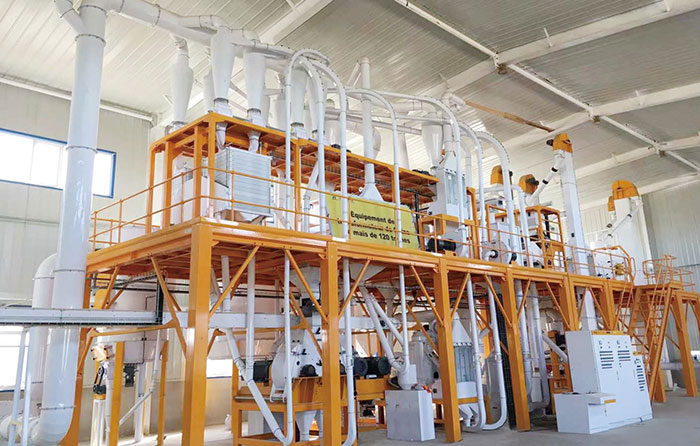
Improve Production Efficiency:
From mini setups to large-scale plants, our maize milling machines cover it all.
Experience seamless operation with our mini, small, and large maize milling machine options.
Achieve production efficiencies ranging from 5tpd to an impressive 200tpd.
Precision in Every Step:
Our advanced milling technology ensures every grain of maize is meticulously processed.
From cleaning and conditioning to determination, grinding, and automatic packing, we've perfected every stage of the milling process.
With precise controls and automation, expect consistent quality and compliance with industry standards. (view details about maize mill process)
Leading the Way in Environmental:se
Join us in our commitment to sustainable maize flour production practices.
Our environmentally friendly designs minimize energy consumption, reducing your environmental footprint.
Together, let's build a future of responsible manufacturing and premium quality flour.
Customizable Plant:
Our highly efficient and customizable equipment is tailored to meet your specific needs.
Whether you're a small, medium, or large-scale flour mill, we have the solution to enhance your productivity.
With PINGLE by your side, expect nothing less than superior performance and unmatched reliability. (view details about set up maize mill plant)
Quality Assurance:
At PINGLE, quality is not just a promise—it's our foundation.
With a team of 85 engineers and technicians and over 160 patents, innovation is at the heart of everything we do.
Rest assured, our certifications including AEO, CE, and ISO9001 guarantee equipment that meets the highest global standards.
Contact us now to explore our range of maize milling machines and embark on a journey to flour production excellence with PINGLE at your side.
Type | Capacity Range | Features | Application | |
Size | ||||
5TPD - 20TPD | small size, easy to carry and move, simple operation, usually suitable for personal or small-scale use. | suitable for families, small bakeries or places with a small amount of flour demand. | 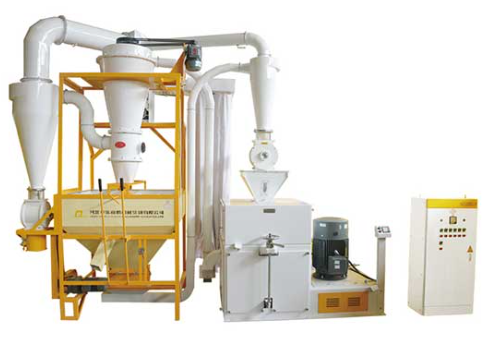 | |
20TPD - 80TPD | moderate production capacity, suitable for medium-sized production needs, the price is relatively more affordable. | suitable for small-scale flour milling factories, bakeries, restaurants and other places where there is a certain demand for flour. | 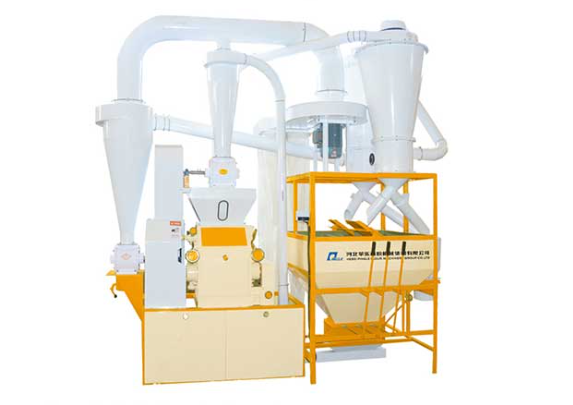 | |
80TD - 220TPD or customize | high production efficiency, a high degree of automation, usually require larger production sites and investment but can meet the needs of large-scale production. | suitable for large-scale production of flour in large-scale flour milling factories, food processing plants, grain processing enterprises and other large-scale production of flour. | 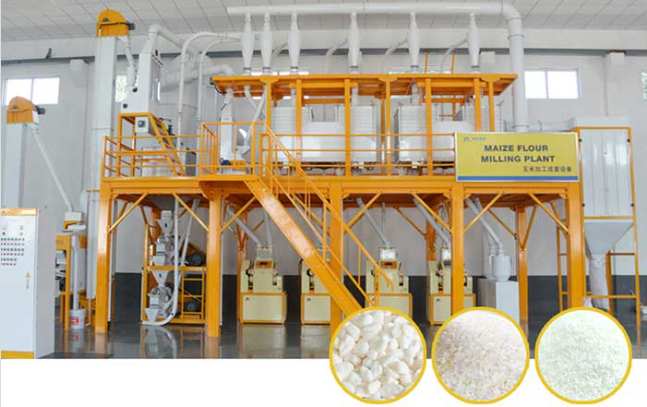 | |
Process | ||||
Customize Capacity | Hammer mill is favored for its high efficiency, large crushing ratio, and high production capacity in the application of maize milling field. It is suitable for fine crushing and coarse grinding processing of corn, capable of crushing maize grains and grinding them into the required powder. The hammer mill has a simple structure, easy maintenance and stable operation, so it has high reliability and durability in practical applications. | Hammer mill is commonly used in the production of maize flour, maize grits and other food ingredients | 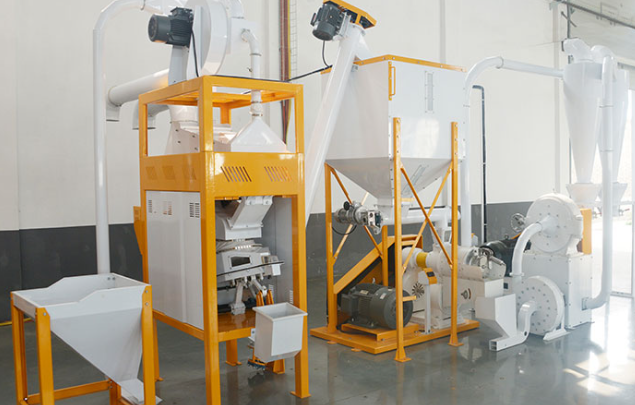 | |
Customize Capacity | Roller milling equipment, such as a three-roller mill, also has unique applications in maize milling. It can achieve homogeneous dispersion of materials and particle size reduction so that corn particles can be evenly crushed and milled. By adjusting the distance between the rollers and choosing the right roller material, the particle size and quality of the maize meal can be precisely controlled. The design of the three-roller mill enables the material to be discharged in time, avoiding the problem of repeated crushing and thus improving the grinding efficiency. In addition, the rolling milling equipment also pays attention to environmental protection and energy saving, through the optimization of structure and process, reducing energy consumption and noise, and achieving green production | Rolling milling equipment is often used to produce high-quality maize flour, which is suitable for fine processing in food, feed and other industries. | 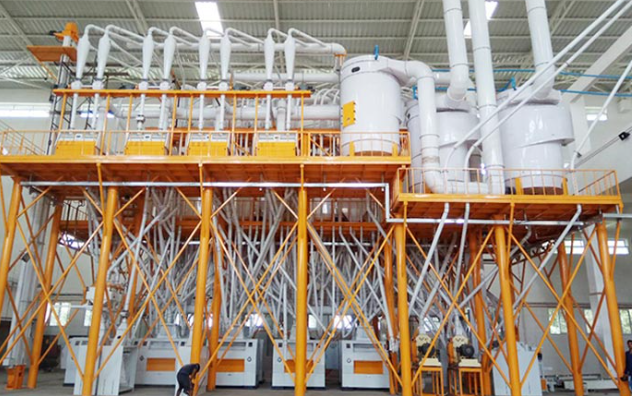 | |
Milling Drive Type | ||||
Customize Capacity | The Electric maize milling machine boasts several key features. Firstly, it operates using electricity as its power source, ensuring consistent output and high efficiency. Its grinding capability is reliably good, making it suitable for large-scale production requirements. Additionally, it's easy to operate and can run continuously for extended periods, making it a favored choice in maize processing enterprises. Thanks to the reliable and readily available electricity supply, electric maize grinding machinery is commonly utilized for production and processing in fixed locations. | Flour processing plants, large farms, etc. | 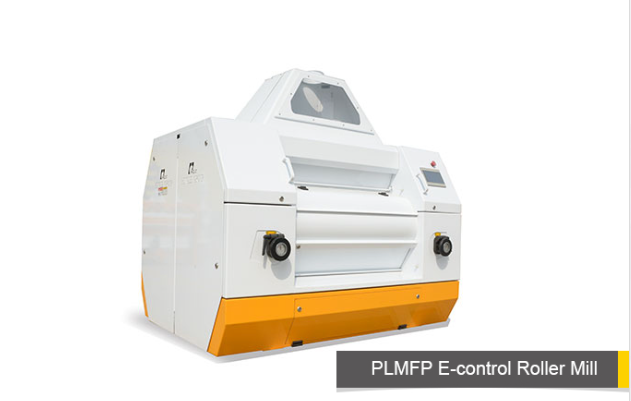 | |
Customize Capacity | The Pneumatic Maize Roller Mill operates based on pneumatic conveying principles for its grinding tasks. One of its key features is its ability to prevent dampness, stains, or foreign matter contamination during material transportation, thereby aiding in maintaining the purity and hygienic quality of maize flour. Moreover, there's no material retention within the pneumatic conveying device, reducing residue and waste. Typically, pneumatic maize grinding machinery sports a compact structure with a small footprint, making it suitable for spaces with limited room. Additionally, it boasts fewer moving parts and minimal wear components, resulting in relatively low maintenance costs. However, since pneumatic conveying requires a certain air pressure level, the energy consumption of pneumatic maize grinding machinery may be slightly higher compared to electric grinding machinery. | It is more suitable for places with higher hygiene requirements, such as food processing enterprises, feed processing plants, etc. It is also suitable for some places with limited space, such as small farms, farmer families, etc. | 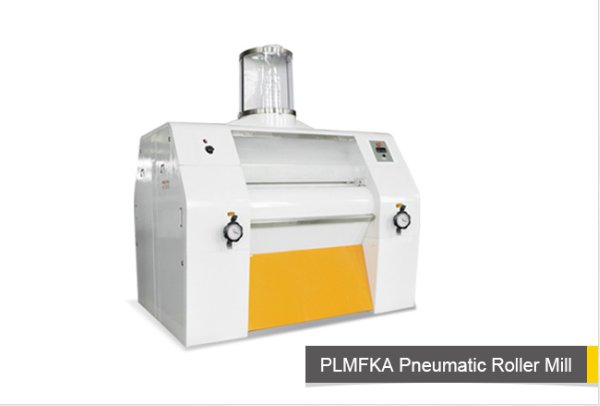 | |

First, the raw maize is brought to the plant for cleaning/pre-cleaning. This is an important step in ensuring the quality of the final product. Using slotted screens or suction devices, the machine effectively removes foreign matter such as husks, straw and dust from the maize corn, ensuring the purity of the raw material. At the same time, to prevent damage to the equipment, magnetic devices are used to attract and remove metal contaminants that may be mixed into the raw material, thus extending the life of the mills and milling equipment.
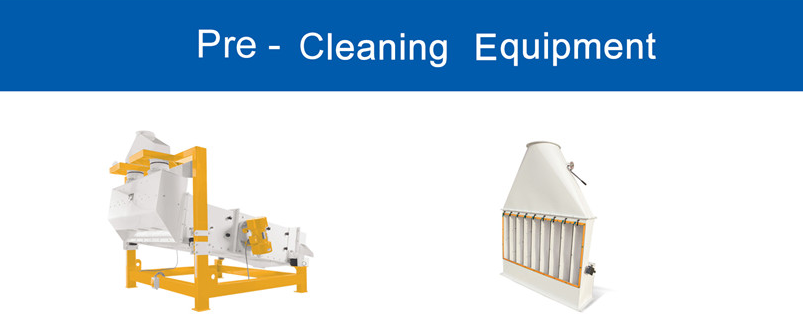
This is immediately followed by the conditioning stage. In this stage, the maize is treated with water to moisten the germ and bran for subsequent removal/separation operations. Precise control of moisture levels is essential to improve the efficiency of determination and the quality of the maize meal. A combination of degermination agents will ensure that optimum conditioning is achieved.
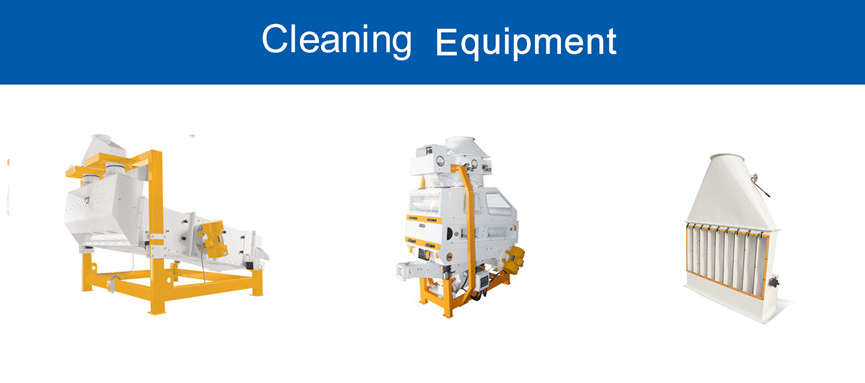
Determination is an optional step, depending on product requirements. The purpose of this process is to remove the germ from the endosperm to obtain a more refined maize meal and to extend the shelf life of the final product. The germ is used as a by-product in animal feed, increasing the profitability of the business.
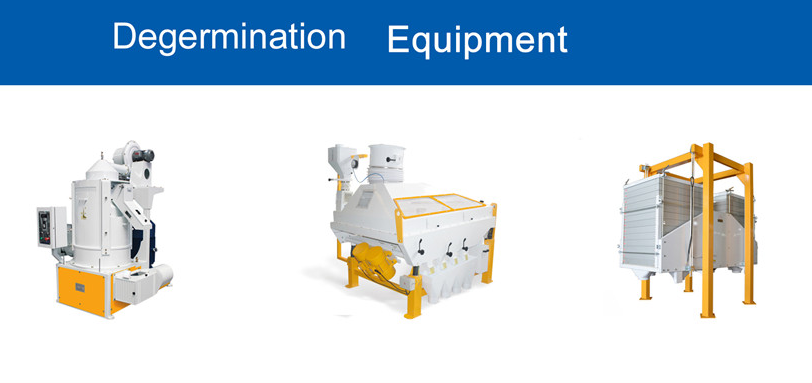
This is followed by the milling and sifting stage. At this stage, the maize is broken down into maize meal by the combined action of drums and screens. Meanwhile, the remaining bran is removed by sieving to ensure the purity of the product.
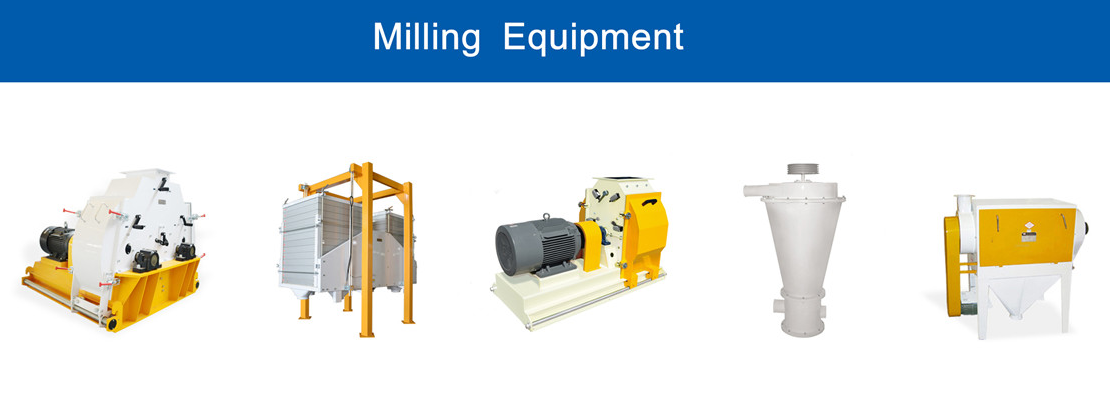
The final step is packaging. After grinding and sifting, the maize meal is packaged into the final product. This process can be manual, semi-automated or fully automated to improve production efficiency. During the packaging process, as well as focusing on the operational aspects, it is important to consider the appearance of the product packaging to ensure that it meets market demand and consumer preferences.
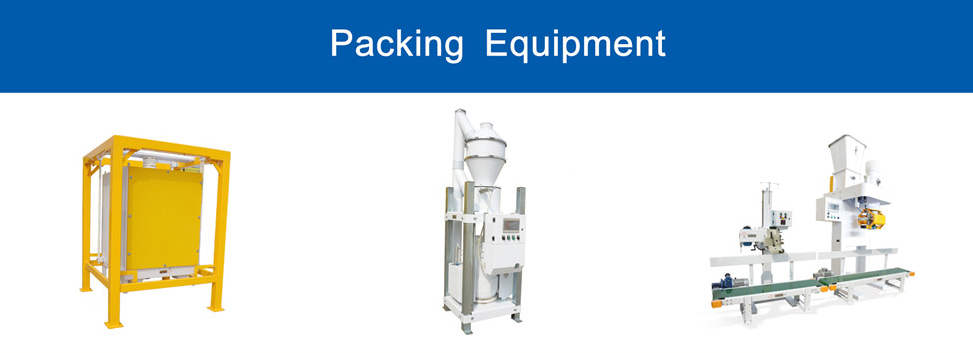
 GET MAIZE MILLS PRICE
GET MAIZE MILLS PRICE
Like any other industry, maize milling has its unique processes and terminology. Here’s a simple explanation of how a maize mill works and the processes that can take place during the production of maize meal and bran, depending on the set-up and size of the milling operation, and the type of maize meal required (community, super, special or very fine maize meal).
1. Cleaning / Pre-cleaning of raw maize
2. Conditioning
3. Degermination (Optional)
4. Milling and sifting
5. Packaging
If you want to start a maize milling business or boshu milling business in Kenya, South Africa, Zambia, etc., avoid many investment risks by having a well thought out business plan before you start milling maize into profitable maize meal.
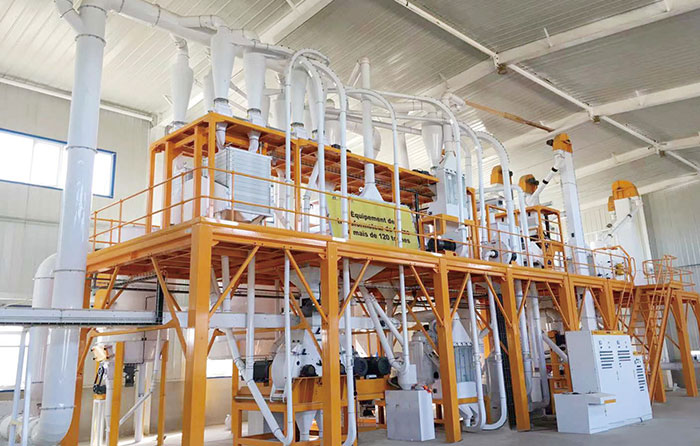
1. Environmental investigation
The first thing to consider is whether the accessibility is very good? Is the raw grain easy to purchase and transport? Is there electricity nearby? If not, we will choose a diesel-powered crusher. If yes, we can consider electricity; in addition, you should also consider the supply and demand of maize meal. If the demand is relatively large, then you can plan a large-scale maize milling operation
2. Determine your supplier and product information
We have learnt about the market demand and your shop location has been identified, so now it is necessary to fully ascertain some information about your raw material supplier, if you are planning to buy maize from other sources, do your homework and find a reliable and sustainable supplier. Avoid unforeseen losses or misunderstandings by having your supplier sign a contract with you. In addition, specific product quality standards, product packaging design and specifications must be identified and implemented simultaneously when executing the following plan to avoid delaying the entire project.
3. Writing a Maize Mill Business Plan
After market research, we can determine the size of our business and have some ideas, then we should write them down and organise them into a complete plan.
The plan should include our budget, target customers, market, quality of maize flour, raw material methods, competitor analysis, our selling points and risk analysis. A good business plan can help us avoid many risks. (view more about Keys For Maize Flour Milling Business)
4. Maize Mill Financial preparation and budget planning:
Evaluate the total investment required for the project, including equipment purchase, site lease or purchase, and working capital.
Make a detailed budget plan to ensure that the funds are sufficient and reasonably used.
5. Maize Mill Plant Site Selection and Planning:
According to the scale of business and market demand, select a suitable site, taking into account factors such as accessibility and environmental safety. Plan the flour site, including the layout of the production workshop, warehouse, office area and so on.
6. Selection of suitable maize milling machines
Before you start marketing and making maize meal products, you need to determine your capacity based on market research. The quality and quantity of the products you sell determine the type of plant to choose.VOSON has a wide range of affordable, high-quality mills designed for small maize milling businesses. Read more about our competitively priced maize mills at the bottom of this article. Choose a reliable supplier and you're halfway there! (view more about maize mill machines)
7. Register your business
You will need to register your business with the relevant authorities in your country/region before you can operate in full compliance with the law. During this process, you will need to choose a name for your business and maize flour products.
8. Setting up your maize mill, worker recruitment and training
Wait for the maize mill machine manufacturer to deliver the equipment and then begin construction of the mill. In the meantime, you will need to recruit some reliable workers to participate and have our engineers train them to operate and teach them how to maintain the equipment. (view PINGLE maize mill machines and service)
9. Establish a quality management system
Set up strict quality management standards to ensure stable and reliable product quality.
Regularly carry out quality inspection on the production process to find out and solve problems in time.
10. Safe production and environmental protection measures
Establish a perfect production safety system to ensure personal safety of employees and normal operation of equipment.
Comply with environmental protection regulations, take necessary environmental protection measures to reduce pollution emissions in the production process.
11. Production and sales of your maize flour products
Once the equipment is commissioned and running stably, you can officially start your business. Do you sell directly to consumers wholesale or retail? Do you need to advertise, or have you targeted a stable customer base in advance? Knowing this will also determine what kind of delivery you need and how much you should budget for it.
12. Branding and marketing:
Design a unique brand identity and packaging to enhance your brand image.
Develop effective marketing strategies, including online and offline promotions and participation in industry trade shows, to increase brand awareness.
 START YOUR MAIZE MILL BUSINESS
START YOUR MAIZE MILL BUSINESS
Efficient factory layout design ensures streamlined workflow. Proper segregation of different process areas (e.g. receiving, cleaning, grinding and packaging) helps prevent cross-contamination. Hygienic practices, including regular cleaning and maintenance of equipment, are essential for producing safe and high-quality flour.
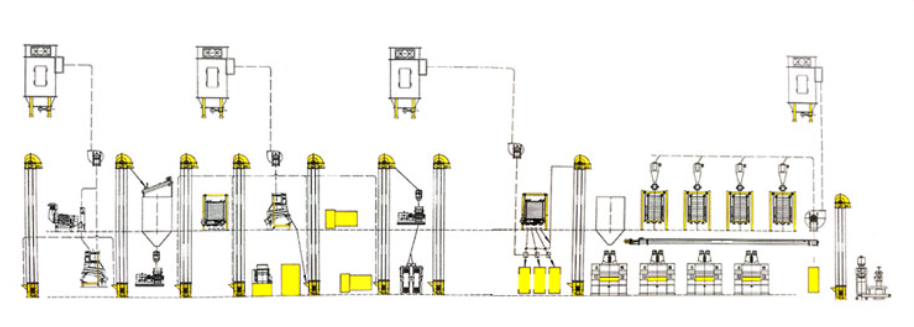
The preferences for maize meal depend on regional and cultural factors, as well as personal tastes and budgets. Maize millers should therefore understand the preferences of their target market in order to produce maize meal that meets customers’ needs and expectations.
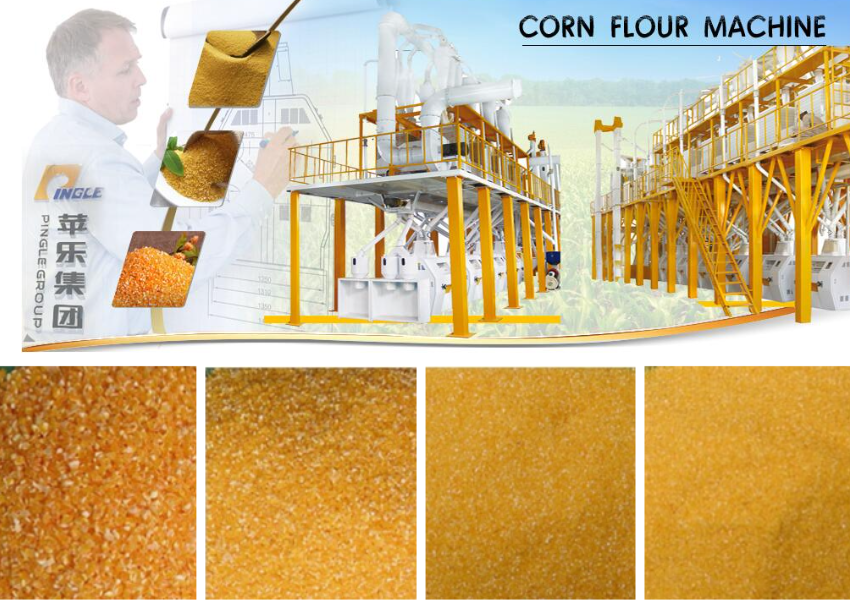
Super maize meal is the highest quality maize meal available and the most popular in the country, usually made from white maize and processed with equipment including a degerminator and roller mills.
Special maize meal is a high-quality maize meal typically produced from white maize. It is of a lower grade compared to super maize meal and undergoes a less complex milling process than super maize meal.
Samp is a coarser maize meal made from a combination of white and yellow maize, and is used in a traditional South African dish, Samp and Beans.
Super refined meal is fine-milled, high-quality maize meal made from white maize and processed using equipment including a degerminator and roller mills. It’s often referred to as mealie meal and is used to make the staple dish of sadza, which is a type of maize porridge.
Special maize roller meal is a high-quality maize meal typically produced from white maize. It has a slightly coarser texture compared to super maize meal and undergoes a less complex milling process than super refined meal.
Breakfast maize meal is a lower-grade maize meal often made from yellow maize and which is coarser in texture and undergoes a less complex milling process than super roller meal. It’s used to make porridge or other breakfast foods.
Fuba is a very fine maize meal used in African (Angolan) cuisine. A more complex milling process is required, which includes the use of a degerminator and a combination of roller and hammer mills to achieve the finer consistency.
Grade 1 Sifted2 is a finer maize meal made from white maize and is used to make ugali, a stiff porridge processed with equipment including rollers mills.
Sifted is a lower-grade maize meal made which is coarser in texture and undergoes a less complex milling process than grade 1 sifted meal.
Sembe is a fine meal that is a higher-quality maize meal made from white maize and processed using a more complex milling process including degerminators and a combination of hammer and roller mills. It’s finer in texture and has a lighter colour than other grades of maize meal.
Dona is a coarse meal of a lower-grade maize meal and makes use of a less complex milling process.
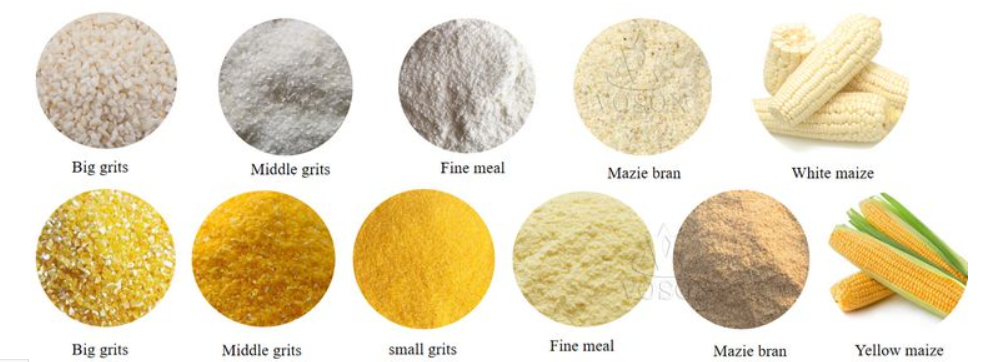
Our product range includes a wide range of maize flour mill plant and fully automatic maize plant.
| Type | Power(k w) | Capacity(t/24hr) | Workshop Size(L*W*H)m | ||
| 1TPD - 20TPD Maize Flour Milling Machine | 6FTS-3D | 7.75KW | 3ton | 3.2m*2m*3.2m | 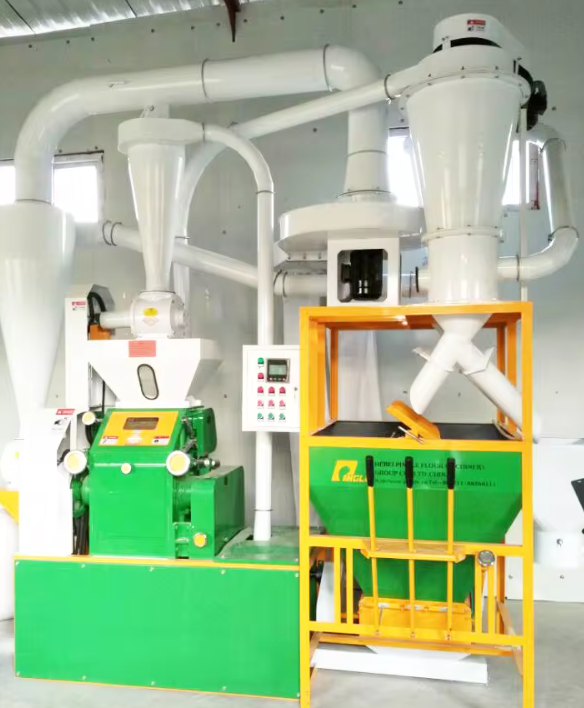 |
| 20-30T/D Maize Flour Milling Machine | 42B | 104 | 42TPD | 31.4*7.5*7.2 | 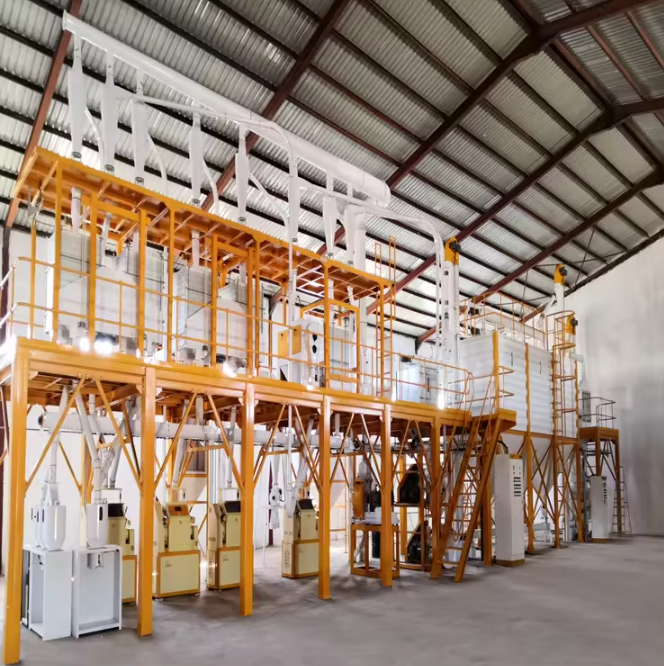 |
| 50T Maize Flour Milling Plant | 52B | 144.55 | 52TPD | 36.5*8*7.2 | 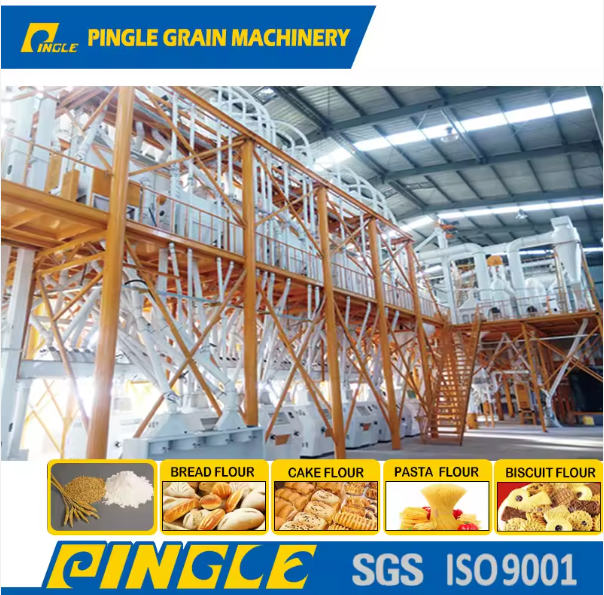 |
| 50-150T Complete Maize Milling Plant | 62B | 182.5 | 62TPD | 40.*8*7.2 | 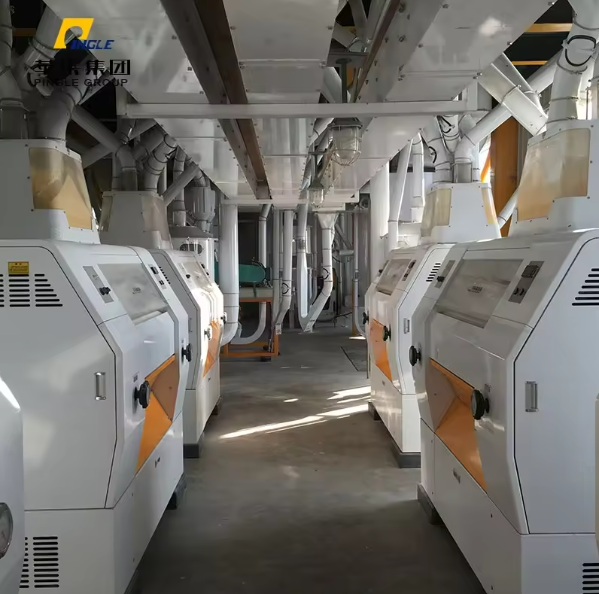 |
| 82B | 249 | 82TPD | 45*8*7.5 | 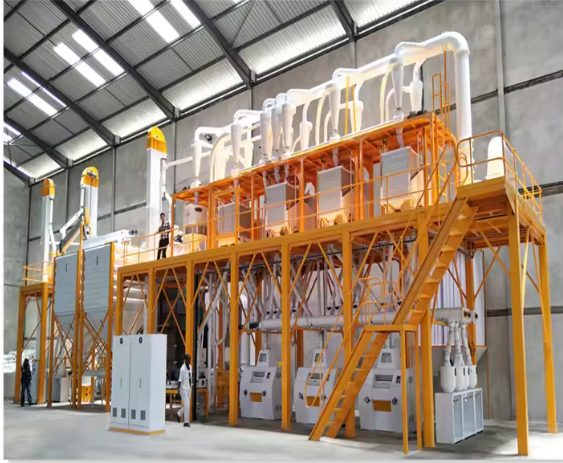 | |
| 100t | 340 | 100TPD | 35*10*11 | 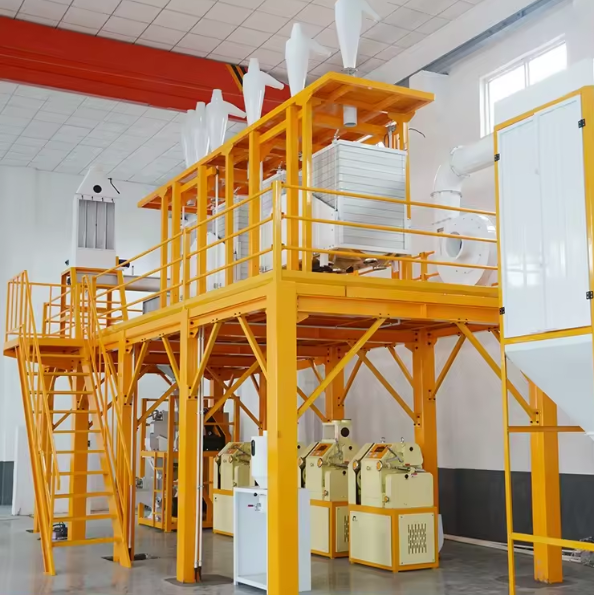 | |
| 120t | 420 | 120TPD | 43*10*11 | 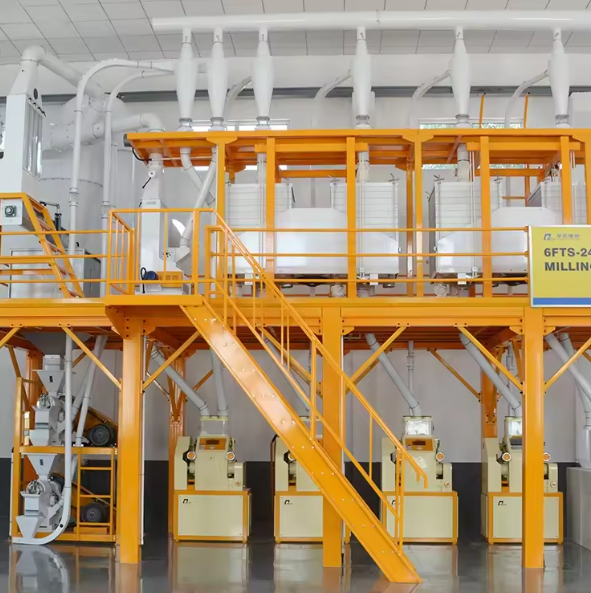 | |
| 150t | 540 | 150TPD | 49*10*12.5 | 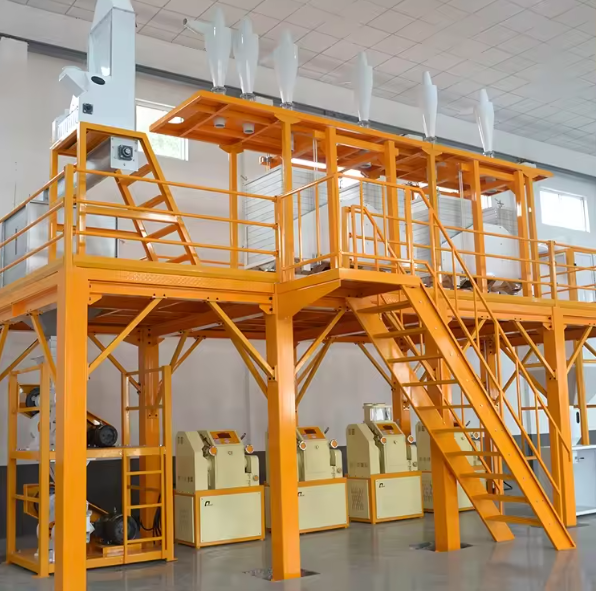 | |
| 200T Maize Mills | 200tA | 704 | 200TPD | 54*12*12.5 | 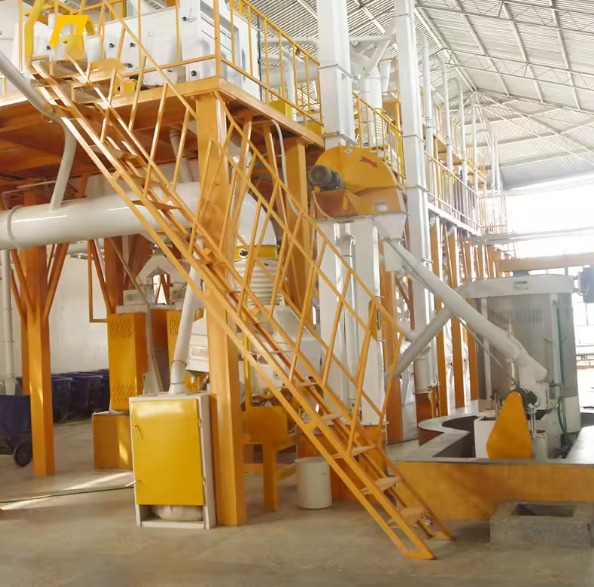 |
| 200tB | 704 | 200TPD | 54*12*12.5 | 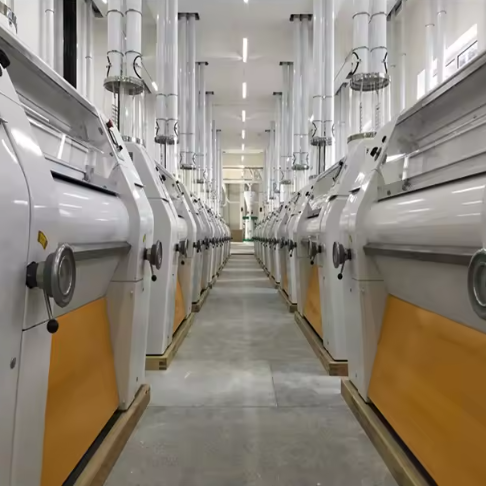 | |
| 220t | 820 | 220TPD | 57*12*12.5 |
Many people are interested in starting a flour mill business. However, they have no idea about the detailed steps and expected costs of setting up a flour mill. And they are curious about how much money a flour mill, say on a small scale, can make in a year. Here, Pingle, a China leading flour mills manufacturer, provides the information you may need, such as a business plan for a wheat flour mill. If you are interested in starting your own wheat/atta flour mill business, or other grain flour business, like cassava flour milling, please contact us for FREE quotation on both small-scale or large-scale flour mill machinery.
Generally speaking, a complete maize milling plant cost should include a raw material storage area, a flour milling machine area, and flour packaging area. There are many factors you may want to consider before starting a maize milling business, and one of the most critical questions is how much it costs to build a maize milling plant.
This is the entire maize milling budget. To be honest, there is no doubt that no one can tell you the fixed price. Complete maize milling plant is a big range of milling business.
There are many major factors that you must consider before you start, such as footprint, planning budget, and production capacity.
Land and buildings: You will need to buy or lease a piece of land in a suitable location, construct or renovate buildings, and install utilities such as water and electricity. The cost of land and buildings varies depending on the location and size of your operation.
Machines and equipment: The main equipment for a maize mill plant includes huskers, dehuskers, roller or hammer mills, sisters, and packers. The cost of these machines depends on their capacity, quality and source. You may consider importing from countries such as China or India to reduce costs.
Raw material: The main raw material for maize milling is maize kernels. You need to buy the grains in bulk from farmers or traders. The cost of maize depends on the season, location and quality.
Labor: You will need to employ skilled and unskilled workers to operate the mill, store the grain and package the product. The cost of labour depends on the region and skill level.
Registration and licensing: You will need to register your business with the relevant government agencies, obtain a business licence, and obtain the licences and permits required to operate in the food industry. These costs vary depending on the size and type of business.
Other costs: Other costs you may need to consider include transport, insurance, marketing and contingency funds.
It is important to note that these estimates may vary depending on the current economic conditions and other factors. Therefore, it is advisable to conduct thorough market research and seek professional advice before launching a maize processing business.
Professional manufacturer specialized in grain processing machines manufacturing and installation with more than 20 years of experience. The main products includes wheat flour milling machines and maize milling machine. Our products have been exported to 40 countries and regions such as Egypt, Ethiopia, India, Iran, Vietnam, Brazil etc. The International Trade Division sets up a sales dep., technical engineer dep., after sales service dep.and documentation and logistical dep., which can manage engineer designing, installation and service with professional staff.
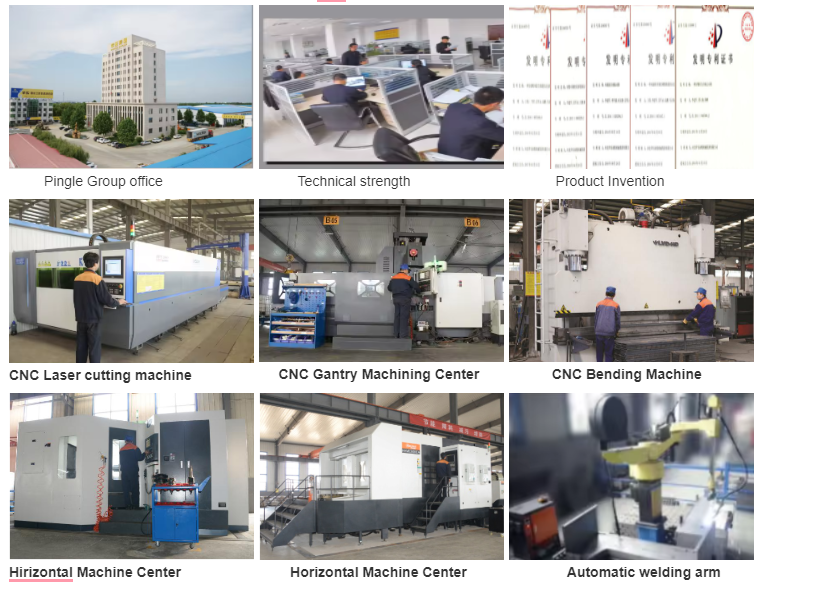
What are maize mill machines?
maize milling equipment is the latest type which is designed for processing the low-fat maize flour with a different granularity as well as other cereal crops. After processing, you can get high-quality corn and coarse cereal flour (size adjustable). Its simple design and the high quality of end product make it a profitable and affordable option for flour milling industry.
What are maize flour processing steps?
Maize Cleaning Process: In this process, we will use stone remover, vibrating screen, gravity grading screen or comprehensive cleaning screen to remove dust, husk, straw, sand, etc. Remove the metal inside to prevent it from entering the following grinding equipment and damaging the equipment.
Maize Grinding Process: There are multiple roller mills in a complete set of maize flour milling plant. The first miller is used for dehulling and degermination, and the other is used for grinding maize in flour. Those that do not meet the fineness will continue to be milled until pass the screen.
Final Product Packing: The processed maize products can be maize grits of different sizes or fine flour, and then packaged into bags with packaging machine, which can be packed as 5kg, 10kg, 25kg, 50kg etc.
At what capacity does maize milling become profitable?
Choose the right equipment machinery based on your production needs and size is important. Below are some common production ranges and types of equipment machinery:
Small flour milling factory, small rural workshops and individual businessmen:
For users with smaller production scales and limited budgets, such as small flour milling factories, small rural workshops or individual merchants, they usually choose small flour single machines. This kind of equipment has the function of automatic loading and can process many kinds of crops, such as wheat, maize, rice, etc. It has a small site area, low investment and easy to operate. It is suitable for areas with small site area, less investment and little output demand.
Capacity Need: 5TPD, 10TPD, 15TPD, 20TPD
Medium-sized flour milling plant:
Medium-sized flour milling plants may choose complete flour units with some production capacity. These units are usually capable of automating or semi-automating the production process, improving production efficiency, and can be configured with certain customisations as required.
Capacity Need: 20TPD, 30TPD, 50TPD
Large Flour Mills and Food Enterprises:
For large flour mills and food businesses, they usually need large-scale, highly efficient flour milling equipment to meet the huge demand in the market. They may choose large, highly automated complete flour production lines, including mills, sieving equipment, flour cleaning machines, packaging machines, etc., to achieve full automation control and improve production efficiency and product quality.
Capacity Need: 100TPD, 150TPD, 200TPD, 300TPD, 500TPD
Special needs users:
For users with special needs, such as scientific research institutions, schools, etc., they may need customised flour equipment to meet their specific experimental or teaching needs.
Capacity Need: Customised flour milling equipment
How to find the best maize mill for your needs?
When considering the quality of flour milling machinery, flour milling factories need to comprehensively consider many aspects, such as brand reputation, materials and processes, core accessories, production efficiency and energy consumption, automation and intelligence level, and after-sales service and support. By comprehensively evaluating these factors, flour milling factories can choose high-quality flour machinery that suits their production needs.
How do maize mills work?
maize kernels are fed from the inlet and the flow rate is controlled by the baffle. As the maize kernels are conveyed by the bucket elevator to the De-stoner, they first pass through a fine sieve, where sand or other impurities smaller than the corn will be screened out and discharged through the outlet. After the fine sieve, the corn kernels enter the coarse sieve, which screens out impurities larger than corn, such as kernel particles; also these impurities are discharged from the outlet. Meanwhile, above the sieve, it is connected to a fan. The function of the fan 1 is to suck out the light impurities that are still mixed in the corn kernels; these impurities will be eliminated by the centrifugal settling function
After cleaning, the corn kernels flow out of the outlet and are conveyed into the screw conveyor. As the corn kernels flow through the screw conveyor, dust or similar small particle impurities are further screened out. The corn is then conveyed into a damper. In the damper, the corn kernels and water are thoroughly agitated and mixed. Those maize kernels that meet the requirements of the dampener will again be transported by an elevator to a storage drum for temporary storage, the purpose of which is to ensure an even flow for the next feeding.
At the outlet of the storage drum, there is a baffle for regulating the discharge flow. As the kernels come out, they go to the pomace mill for initial crushing, which separates some of the husk from the embryo. Afterwards, the crushed maize is transported via a lift to an embryo selector. Inside, the corn husks and embryos are separated and discharged through different outlets. Meanwhile, at the top of the embryo selector, a fan 2 is attached. under the action of the fan, some light impurities are sucked out, while the embryos discharged from the outlets of the selector are transported to the maize milling machine 1 by means of the suction fan 3. The maize husk and some broken embryos discharged from the selector will be transported to the maize flour mill
The maize flour milled by the maize flour mill is sucked into the double bin sieve 1 by the suction fan 3 for sieving, and the maize flour that meets the standard is ejected by the suction fan 4 for weighing and packaging. And the maize flour which does not meet the pressing standard will be sieved out from the double bin sieve and then conveyed to the flour mill 3 by suction fan 3 for further milling. The discharged material will be conveyed by suction fan 3 to the double bin sieve 2 for sieving: the maize flour that meets the standard will be ejected by fan 4; these that do not meet the standard will be conveyed by Fan 3 to the maize flour mill 4. After milling, the maize flour is again fed to the double bin sieve 2 for sieving.
How to start a maize mill business and cost?
For most customers starting a maize mill business, the total cost of the maize flour mill is their main concern. We fully understand this, as investment capital is a key factor in setting up a complete flour mill. However, the exact cost of a maize flour mill is determined by a number of factors including capacity, equipment chosen, power supply, end product requirements, so if you are interested in one of our machines, simply describe your requirements clearly, then one of our engineers or sales staff can provide you with a bespoke quote with exact costs.
Q1: Are you a trading company or a manufacturer?
A: We are a professional manufacturer. We warmly welcome clients from worldwide to visit our factory and cooperate with us.
Q2: What's the Payment?
A: We accept T/T, Western Union.
Q3: Will you send engineers to install the plant?
A: We send engineers to your place for guide installation. Engineers are responsible for guide installation, test running and training.
Q4: Can you show how the machine works?
A: Certainly, we will send you the Operating video & instructions to you together with the machines, to help you use the machines better.
Q5: how can we guarantee quality?
Always final Inspection before shipment;
Q6: what can you buy from us?
A: Maize Milling Plant, Maize milling machine, maize mills, maize meal mills, and other grain mill machines.
Q7: why should you buy from us not from other suppliers?
A: PINGLE has proudly served customers for more than 20 years. We are a Chinese manufacturer that is committed to the development, production, distribution, installation, and testing of flour milling machines.
Contact us By email: pingle@pingle.cn
Q8: what services can we provide?
A: Accepted Delivery Terms: FOB, CFR, CIF, EXW, Express Delivery;
Accepted Payment Currency: USD;
Accepted Payment Type: T/T, L/C;
Language Spoken: English, Chinese
Q9: What’s your advantage? Why do we choose you?
A: 30 Years experience in designing and manufacturing grain machinery. We have the most professional techniques team and the best after-sales services.
Q10: How about the INSTALLATION?
A: Professional engineers are in charge for installation, commission and training, etc.
Q11: Do you provide after sale service?
A: We provide 24h after service , our overseas service center available in Zambia, Kenya, India, Brazil and Ethiopia. Zambia: Plot No.36351, Mungwi Road, Heavy Industrial Area, Lusaka, Zambia India: C601, Patel Heritage, Sector 7, Kharghar, Navi Mumbai. Brasil: R.Aleixo Garcia, 442- Oficinas, Ponta Grossa- PR, 84036-060, Brasil Kenya: K2 Godown, Dul Dul Business Park(Mlolongo/Sabaki Area), Mombasa Road, Nairobi, Kenya
Q12: How can I know your machine is designed for my product?
A: Pingle has a dedicated R&D center to provide you with professional machinery technology consulting, professional design to meet different customer needs.
Q13: How can I know your machine working well?
A: Before delivery, we will test and adjust the machine working condition for you, then you can use directly when you get it.
Q14: Do you have an ISO certificate?
A: For every model of machine, it has an ISO certificate.
Q15: Warranty period
A: We provide 2 years warranty, while for core components, we have 3 years warranty.
(1)flour mill machine with high production capacity but with low energy
(2)Designed for producing high fineness of maize flour, flour mesh size ranges from 40~100
(3)Equipped with best importing grinding head and grinding rolls
(4)Automatic and micro-computer control
(5)Super space saving
 Design according to your special requirement.
Design according to your special requirement.  Free repair within 1 year.
Free repair within 1 year.  Local Engineer
Local Engineer  installation service
installation service  test machine running
test machine running  trainning local workers for you.
trainning local workers for you.
Brand & Manufacturer Reputation: PINGLE has a long history of technology accumulation and rich production experience, which can ensure the stability and durability of the equipment.
Materials and workmanship: High-quality materials ensure the strength and durability of the equipment and reduce the failure rate. At the same time, the fineness of the processing technology also directly affects the quality and performance of the equipment.
Core parts and power system: the quality of core parts such as electric motor and reducer is directly related to the operation efficiency and stability of flour machinery. High-quality electric motor can provide stable power output and ensure the equipment to run for a long time without failure
Production efficiency and energy consumption: the production efficiency of flour machinery is one of the important indexes to measure its quality. Efficient equipment can complete more processing tasks in a short period of time and increase the capacity of the mill. Pingle, as China is specialised in the production and sales of large, medium, small and mini maize flour milling machine. the production capacity of small maize milling machine is about 5TPD-10TPD, and the production capacity of large maize milling machine can reach about 200TPD.
Degree of automation and intelligent level: Modern flour machinery usually has a certain level of automation and intelligence, such as automatic feeding, automatic milling, automatic packaging and other functions. These functions can reduce the intensity of manual operation, improve the production efficiency, and reduce the error caused by human factors.
After-sales service and support: high-quality after-sales service and support is one of the important aspects of considering the quality of flour machinery. The equipment will inevitably break down or need maintenance in the course of use, whether the manufacturer's after-sales service team can respond in time and provide professional technical support and service directly affects the operation and efficiency of the processing plant.

Our customers are quite satisfied with our maize mills because our maize mills can meet almost all of their needs. Our maize mills can be customised to meet your specific requirements. In addition to high-quality machines, we offer prompt delivery, skilled technical guidance and excellent after-sales service!
A large maize flour milling plant in Kenya:
"We chose PINGLE maize milling machine and equipment mainly because of its efficient and stable production capacity. Since its installation, the equipment has been running stably with a low failure rate, which has greatly improved our production efficiency. At the same time, PINGLE's machine after-sales service team is also very professional, able to solve the problems we encountered in the process of use in a timely manner, which makes us feel very relieved."
A medium-sized maize flour food enterprise in Pakistan:
"The PINGLE maize flour milling machines is highly automated, which greatly reduces our workload. The equipment is easy to operate and the employees get up to speed very quickly. Moreover, the quality of the maize flour milled by the machine is very good, which meets our need to produce high quality food. Overall, the PINGLE equipment has brought us great convenience and benefits."
Small maize flour milling plant in South Africa:
"As a small maize flour mill, we were originally concerned that large equipment would be beyond our budget and operations. However, PINGLE offers small maize milling equipment that fits our size, is reasonably priced, and has stable performance. The equipment has a small footprint, which is perfect for our site conditions. Since we have been using it, the machines have performed well and has brought us a steady income."
Agricultural co-operative in India:
"Our co-operative bought the PINGLE maize milling machine mainly to process our own maize into flour and increase the added value of our agricultural products. The equipment is easy to operate and our farmers can easily get started. Moreover, the milling effect of the PINGLE equipment is very good, retaining the nutrition and taste of the grains, making our flour very popular in the market."
Entrepreneur in Africa:
"As an entrepreneur, I chose PINGLE maize mill machines as the starting point of my maize flour business. The investment in the equipment is moderate and the risk is controllable. Moreover, PINGLE provides perfect after-sales service and technical support, which made me take fewer detours in the process of starting my business. Now, my flour milling business is booming, thanks to the help of PINGLE equipment.
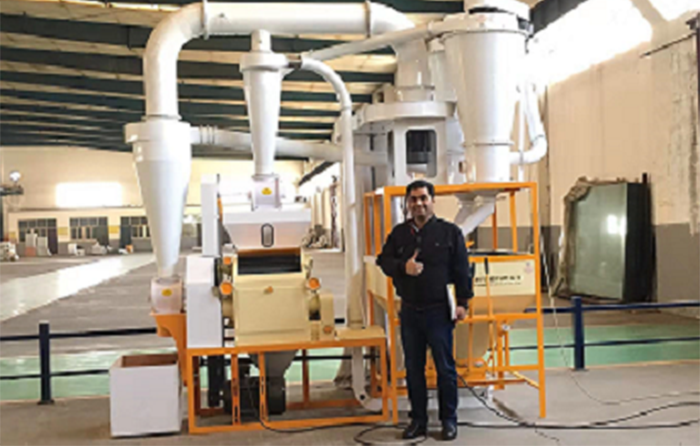
| Cameroon 200TPD Maize Milling Turnkey Project | 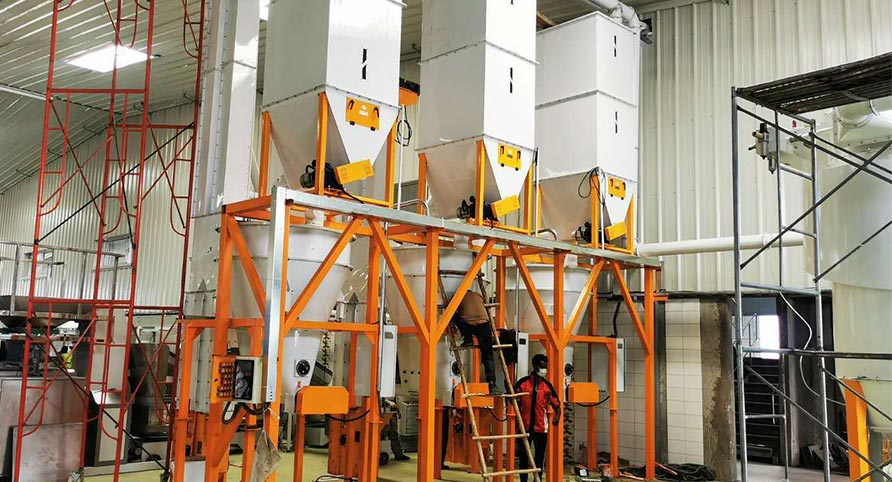 |
| Russia 180TPD Maize Milling Turnkey Project | 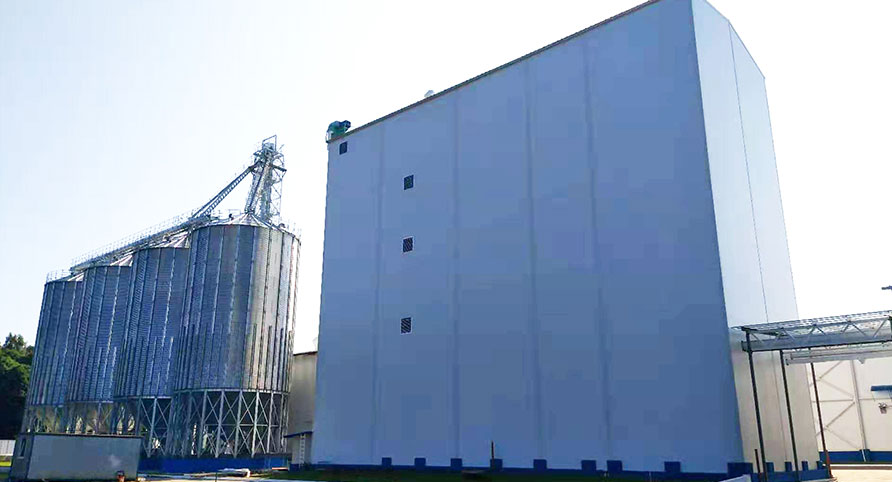 |
| Tajikistan 600TPD Maize Milling Plant | 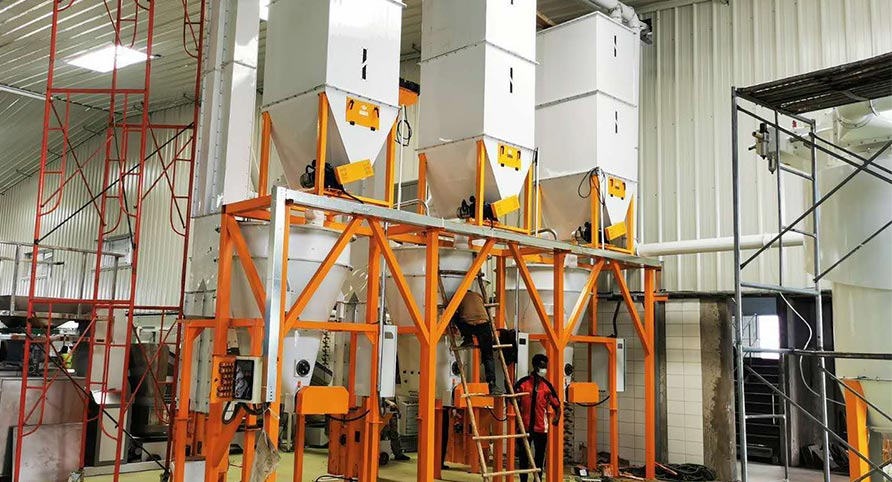 |
| Ethiopia 220TPD Maize Milling Turnkey Project | 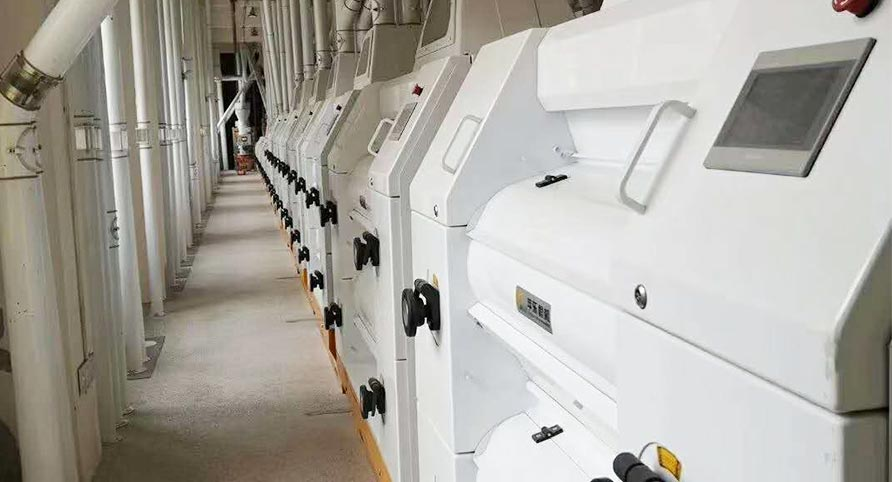 |
| Ethiopia 140TPD Maize Milling Plant | 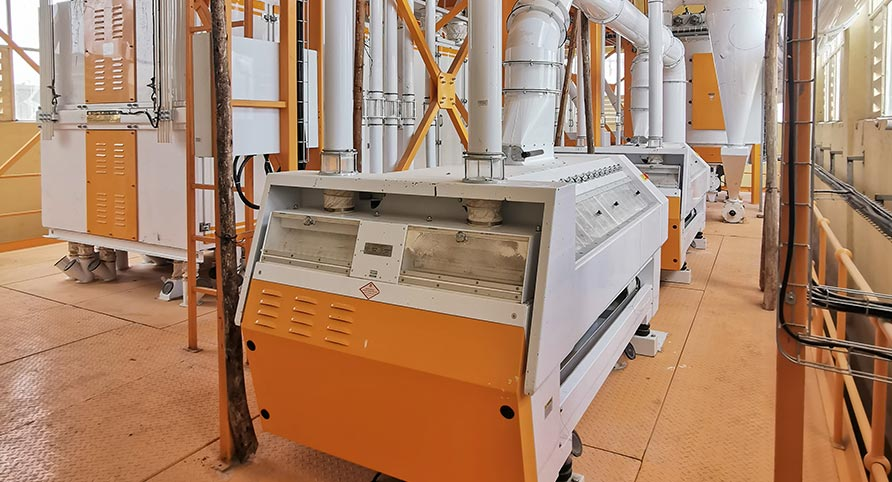 |
| Kenya 100TPD Maize Milling Plant | 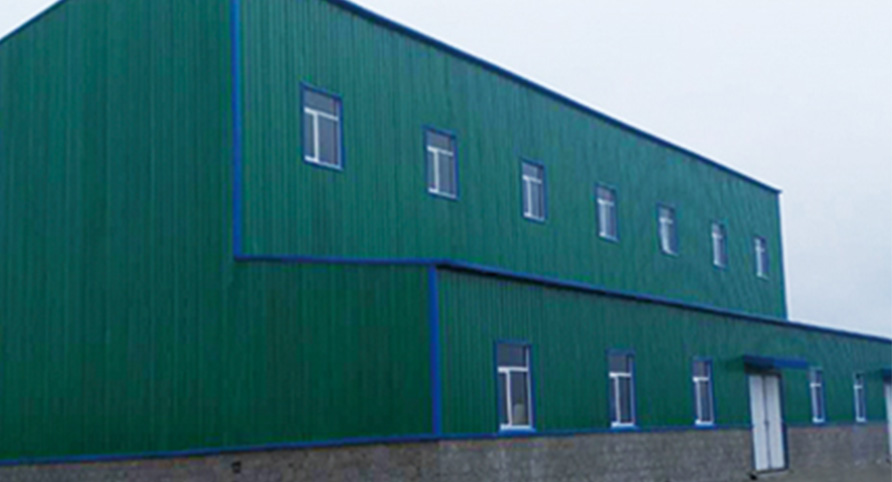 |
| BURKINA FASO 70TPD Maize Milling Plant | 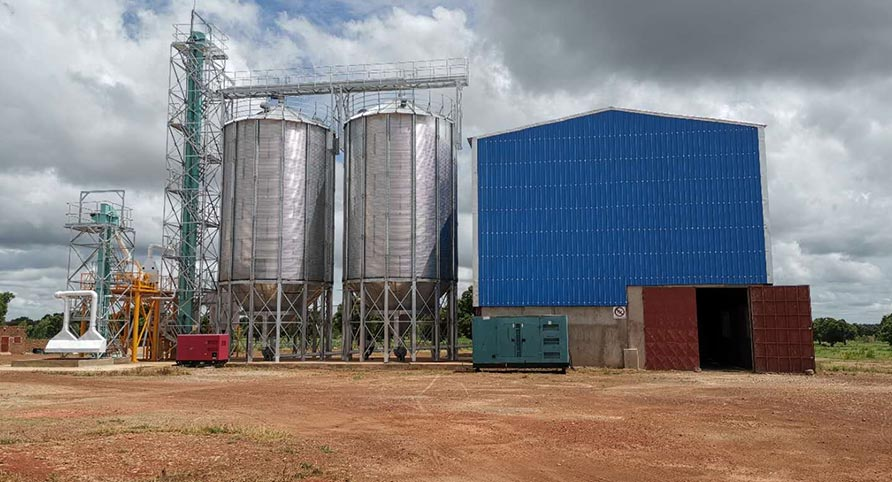 |
| Malawi 100TPD Maize Milling Plant | 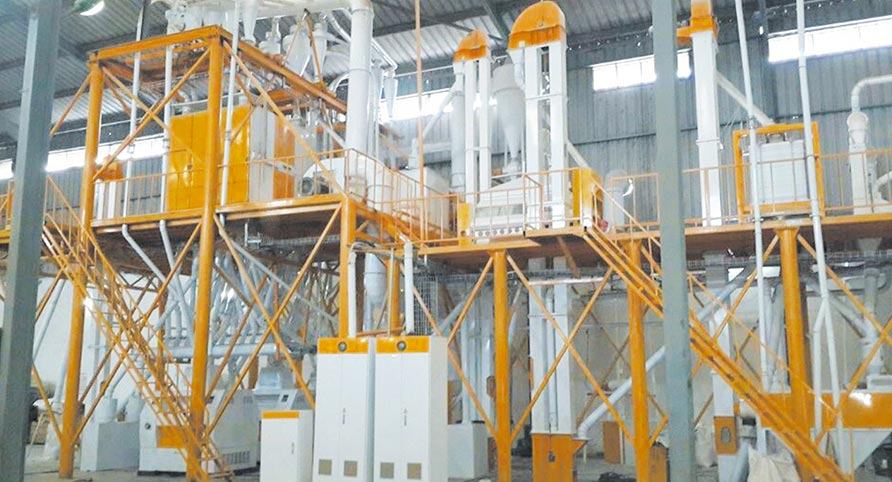 |
| Zambia 200TPD Maize Milling Plant | 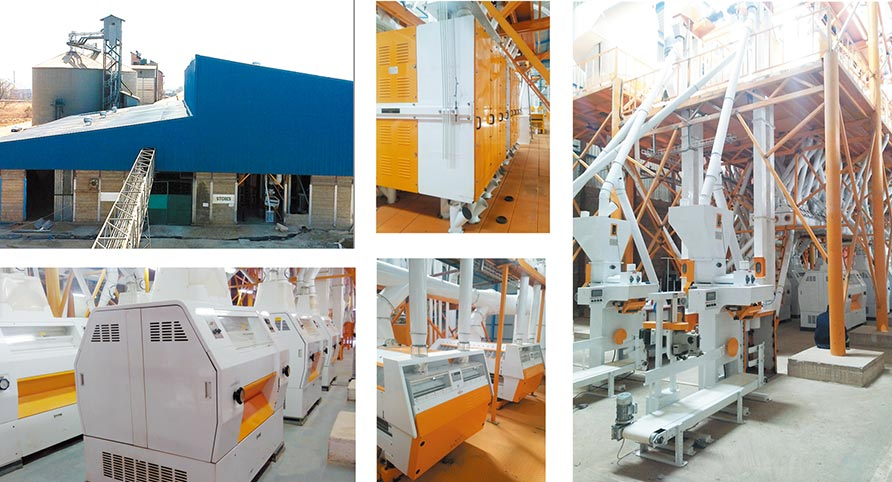 |
| Zimbabwe 150TPD Maize Milling Plant | 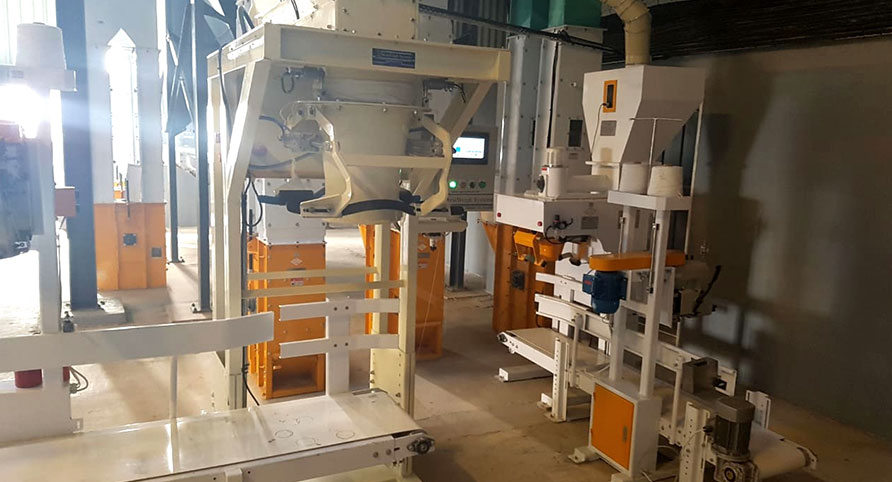 |
Copyright © Hebei Pingle Grain Technology Intelligent Equipment Co.ltd. All Rights Reserved | Sitemap | Technical Support: 